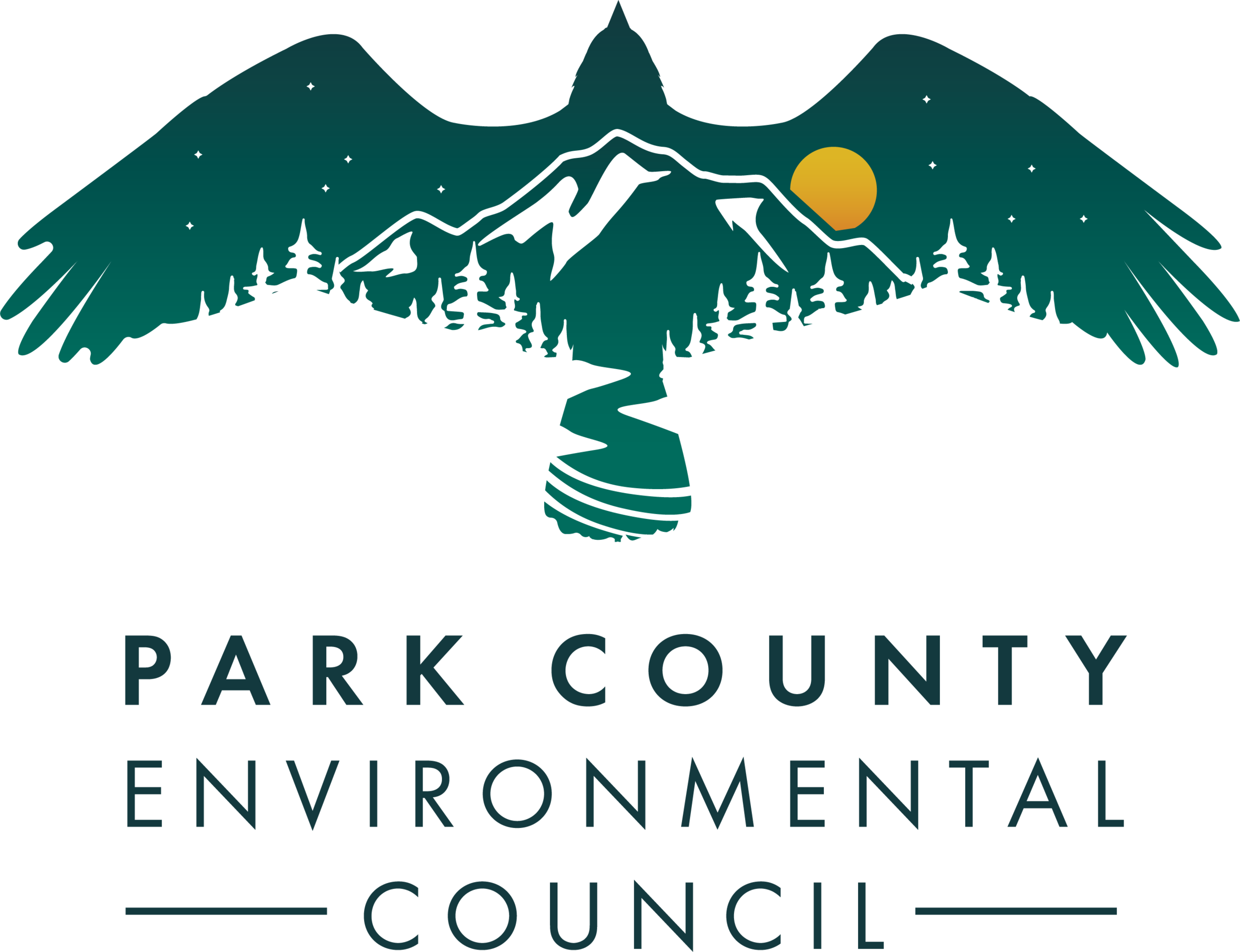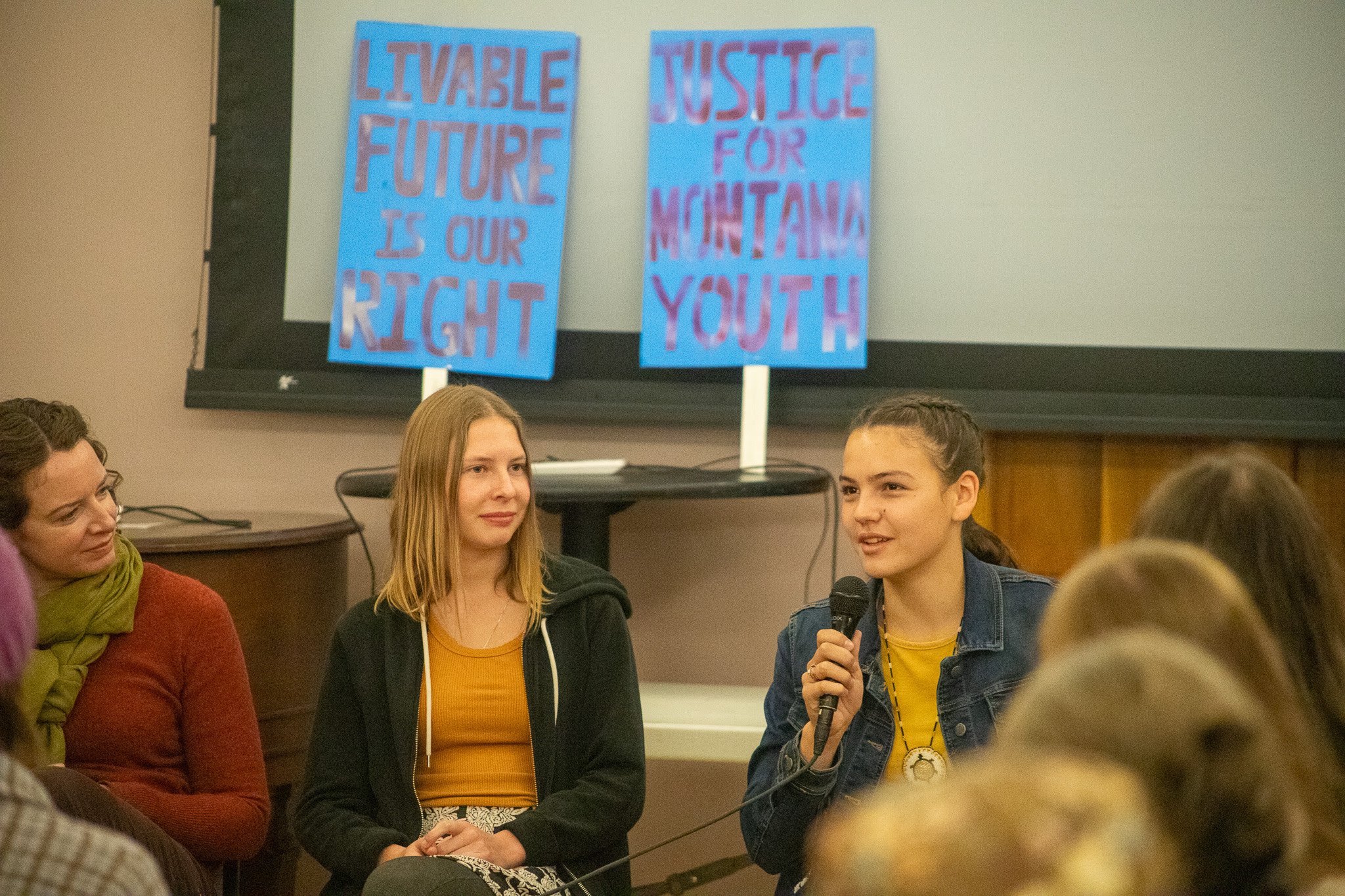DEQ Needs to Assess the Climate Impacts of New Projects
Although it’s last minute, we wanted to get word out about an important comment period regarding the Montana Environmental Policy Act, aka MEPA.
This is an opportunity to make MEPA's implementation more robust!
Despite the short turn around, we encourage you to include your comments in the final document, the Montana Environmental Policy Act Working Group Recommendations and Strategies to Improve MEPA Implementation.
MEPA should include more robust analysis such as the social impacts of greenhouse gasses (GHGs) and impacts associated with all phases, services and materials utilized to implement, operate and maintain a project. Further, the Process and Applicability subcommittee unfortunately suggested that MEPA be weakened and diminish remedies for those that are most vulnerable in court.
KEY MESSAGES FOR DEQ TO HEAR:
Feel free to use these talking points, we’ve included some of our own to those provided to us by the Montana Environmental Information Center to your comment:
We must not compromise rigor or public participation for efficiency and streamlining.
The DEQ does not need to create anything new, and can utilize existing scientific and economic tools, such as the federal social cost of greenhouse gasses.
The DEQ should draft an interim study bill that would task the Environmental Quality Council (EQC) to look at different climate analysis models and economic impacts that would be compatible with any decision made by the Montana Supreme Court
MEPA is a critical public engagement tool and way for the public to fully understand the implications associated with a governmental action. Any attempts to weaken MEPA so that it becomes a mere procedural exercise or limits the ability of citizens to seek constitutional remedies in court should be resisted.
Analysis must include not just the on-site emissions associated with a state action, but the reasonably foreseeable, downstream emissions associated with combustion of fossil fuels. DEQ and other state agencies have the tools they need to analyze the impacts of proposed projects, such as power plants, refineries, and coal mines, on the climate. Greenhouse gasses should be treated on par with all pollution.
DEQ should use the SC-GHG in determining the impacts associated with governmental action. DEQ should use the best available science and economic analyses, which is the federal social cost of greenhouse gasses (SC-GHG), a tool that is readily available and shows that significant harm is already occurring, a tool used by numerous federal agencies and over a dozen states already.
Utilize the numerous environmental, health, and economic reports specific to Montana, available by credible experts, such the Montana Climate Assessment and economic reports by Dr. Thomas Power, regarding the climate impacts on Montana agriculture and the outdoor economy, detailing the environmental and financial harm to various sectors of Montana’s economy and public health from greenhouse gas emissions.
Changes to MEPA should be strengthened to protect the people and places that need it most. The DEQ should engage and center the most vulnerable populations and environmentally sensitive areas in decision making to create a livable future for all Montanans and species we share our home with; explicitly including children, seniors, tribal nations, individuals with health issues or disabilities, marginalized communities, wildlife, insects, forests, grasslands, fish, and more.
Accountability for Non-Compliance: There must be clear consequences for industries or government entities that fail to comply with MEPA regulations. Montanans should not bear the brunt of environmental damage caused by irresponsible actions that lead to increased natural disasters, crop and grazing grass losses, increased wildfires, and harms to public health and our natural amenities.
Background on MEPA Review and the Held Case
Last year, the Montana Supreme Court ordered the state to analyze greenhouse gas emissions under the Montana Environmental Policy Act (MEPA) and its implementation strategies, while it appeals a lower court ruling in the climate case, Held v. State of Montana.
Because of the many public comments received a working group was formed., and Local student, Remy Sexton, a recent Park High graduate and PCEC intern alumni, was invited to this 20 person working group alongside lawmakers, Tribal representatives, energy producers and more.
The working group held its final recommendation meeting May 29th, just days before the youngest member of that group (Remy) walked across the stage at her high school graduation.
In the draft, Christopher Dorrington, Director Montana Department of Environmental Quality, acknowledged “robust conversations, public engagement, and open discussions…generating a report that identifies the greatest challenges and strongest recommendations, but these in no way represent the full breadth of the challenges or possible solutions.” PCEC agrees! It’s a good start, but we can do better!
In recent years, the Montana legislature has undercut laws like MEPA that keep our environment “clean and healthful” and protect the people in development decisions. However, in 2023, youth plaintiffs in the Held v State of Montana case showed that the state has an obligation to regulate greenhouse gasses and protect our environment and youth from pollution that leads to a warming climate.
This process has been quite exciting!
Because of the Held case, for the first time climate was taken into consideration into the MEPA and the youth had a voice in this process despite not being able to vote!
Because of the public and the Green Initiative’s comments, a working group of 20 representatives was put together to continue the discussion and increase public participation.
In October and November 2023, we asked our members, and worked with the Green Initiative, to provide comments to the DEQ to help determine how state agencies should analyze climate pollution and keep MEPA as a “people’s law.” A law that allows community members to know about development projects (such as gold mines, gravel pits, and water permits) before their approval.
Alongside lawmakers, energy companies, Tribal representation, non-profits, and others, PCEC intern alum and Livingston resident Remy Sexton, was invited to participate on the working group to represent youth following her thoughtful comments delivered in November from the classroom of Park High as a member of the Green Initiative. For the last six months, she participated in the 20 person state working group, and on two of the three subcommittees: Public Engagement & Education and Climate Analysis.
What’s Next!
As expected, the State appealed the historic win to the Montana Supreme Court. On July 10, attorneys for the youth plaintiffs will have the opportunity to underscore the importance of upholding Judge Seeley’s landmark ruling at oral argument. The State Supreme Court will make a ruling on the Held versus Montana case Wednesday, July 10th, 9:30am. You can watch the streaming here!
Because of Held vs the State of Montana, because of the working group, because of your participation and comments, because people like you are standing up and voicing what is important to them, MEPA is one tool that helps protect the water, the land, the wildlife and the people of our communities!
We are hopeful, but this case has the potential to change the trajectory of the world!
What you can do!
Read the Montana Environmental Policy Act Working Group Recommendations and Strategies to Improve MEPA Implementation, published June 12th, 2024.
View and submit your own comments by today, Monday June 24th to include in the final draft.
Register for a Zoom here to attend the final meeting of the full MEPA Work Group next Thursday, Jun 27, 2024 04:00 PM
Join us! Support Montana youth as they head to the Supreme Court in Held v. State of Montana! Tune in here for the July 10th, 2024 Held v. State of MT hearing.


